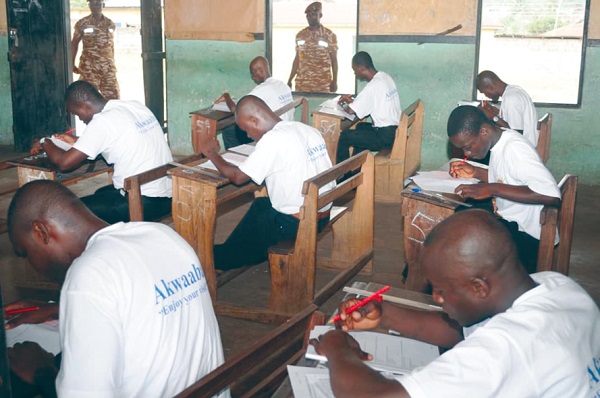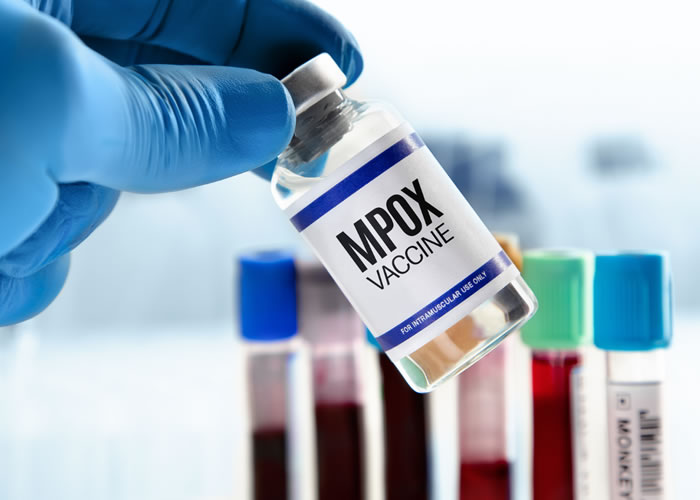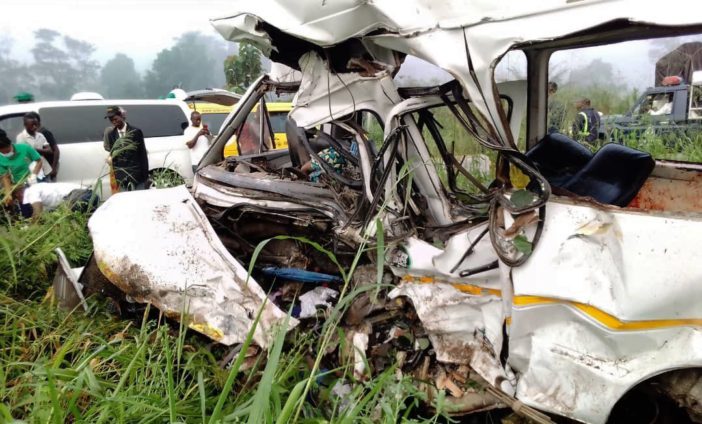It has the tendency of reducing one’s likelihood of returning to criminal activity as higher academic attainment ensures greater opportunities for employment, improves skill sets for economic flexibility and affords the individual stronger decision-making skills to ensure their compliance with the law upon release.
Positive intervention
On January 18, 2020, 59 inmates of the Nsawam Medium Security Prison were matriculated to read various diploma programmes through distance learning from the College of Distance Education of the University of Cape Coast.
The tripartite agreement among Plan Volta Foundation, University of Cape Coast and the Ghana Prisons Service has the vision of rolling out the programme across Ghana’s 44 prison establishments for qualified inmates.
The programme comes at a time when the service is struggling to secure a partner for prisoners’ tertiary education, as those who have successfully completed secondary education either before their incarceration or from within the walls of our prisons have no opportunities for further studies.
The gap in the continuum demotivated prisoners from subscribing to available educational programmes as there was no opportunity to continue beyond the secondary level.
Any investment to assist the Ghana Prisons Service to deliver on its constitutional mandates of safe custody, welfare, reformation and rehabilitation of prisoners is an investment in public safety. Newman et al, in their 1993 work, Prison Literacy, assert that “appropriate education leads to a more humane and more tolerable prison environment in which to live and work, not only for the inmates but also for the officers, staff and everyone else”.
Prisoner education kills boredom which reminds them of the pains of imprisonment as the pressures of academic work affords them little or no time to grieve over their predicaments.
This presents to the prison administrator a fertile ground to implement rehabilitation modules with the overall aim of improving public safety.
Areas of need
While we commend Plan Volta Foundation and the University of Cape Coast for this intervention, it is important to note that the module requires the strengthening of certain pillars to prevent a situation where it turns into an effort in futility.
The service continues to grapple with a daily feeding rate of GH¢1.80 per inmate.
The amount, which is obviously inadequate, leaves prison administrators in very tight corners as it is almost impossible to convince a virtually hungry offender to subscribe to reformation and rehabilitation modules.
There is an urgent need for an upward adjustment of the rate to reduce the burden on prison administrators.
Overcrowding remains a challenge in Ghana’s prisons as the 2018 Annual Report of the Service pegs the rate at 52.5 per cent.
With the attendant health implications that overcrowding brings, corporate Ghana and faith-based organisations are encouraged to follow the example of the Church of Pentecost to intervene by providing infrastructure required to ease the congestion and present to prisoners a humane environment capable of supporting their reformation.
Finally, when beneficiaries of prison educational modules are released, society should offer them equal employment opportunities as persons who received same training outside.
This will serve as motivation for those in prison to subscribe to prison educational programmes as Dorothea Dix, an American mental health advocate, rightly put it: “While we diminish the stimulant of fear, we must increase to prisoners the incitements of hope, in proportion as we extinguish the terrors of the law; we should awaken and strengthen the control of the conscience.”
The writer is the Deputy Chief Public Relations Officer of the Ghana Prisons Service
E-mail: machator@hotmail.com








